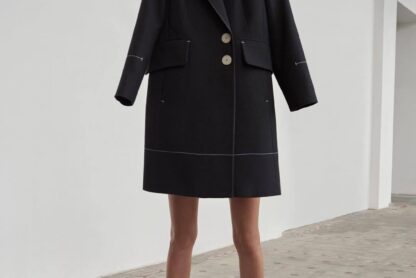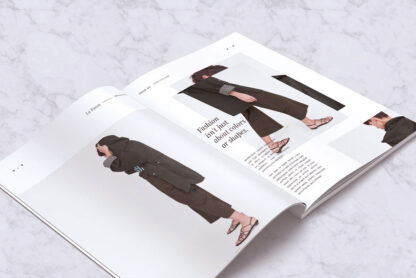Whatever your business stands for, you should think about how your brand can become more ethical and sustainable. The sheer moral significance of it should be enough to convince you, but it will certainly convince your customers to get onboard as well – and it will build a more trusting and long-lasting relationship with them.
Here is a simple guide to how you can boost the focus on ethical fashion and make it a part of your brand’s identity. The sooner you get started, the sooner you’ll be able to reap the benefits of having a transparent company that induces trust.
Only use recycled polyester
You probably know all about the problems with plastic clogging up our precious nature so make sure your brand takes a stance against the overproduction of plastic. Polyester is, as you know, a common fabric in many garments of which plastic is a common component.
While you don’t have to toss out your entire selection of polyester-based clothing, you can make sure that the next batch you order is made out of recyclable polyester instead.
Not only does this support recycling and show that your business cares about the environment but, as many of the recycled garments are made out of old fishing nets, it will also protect marine wildlife. Get started right away, by the way, by looking at this wholesale swimwear collection; it features recycled materials as well, of course, and is perfect for the months ahead.
That’s the kind of fashion company we need more of and you should make sure that yours is at the forefront of protecting our planet.
Use less packaging
Many businesses are realising the benefits of reducing their amount of packaging but many of them neglect to follow through with it. Grocery shops, for example, are notorious for flagging their supposed lack of packaging and may even give you your groceries in wooden crates rather than plastic bags – but, at the same time, they feature products in the shop that are individually wrapped.
Make sure your fashion business follows through with it and think about how you wrap the clothing before sending them off to the customer. As clothes are not prone to breakages, you won’t really need to wrap it in bubble wrap or plastic. Simply communicate this to your customers right away and let them know that you’re trying to cut down on how much packaging your business is using. They will undoubtedly notice the effort and appreciate it.
Try to think about other ways you can recycle things without literally sending it off for recycling. Upcycling may help your business to look a bit quirky and interesting, by the way, in addition to work against consumerism.
Consumers are, in fact, becoming increasingly aware of the flipside to made fashion brands and consumerism aspect of fashion is slowly but surely ebbing out. That’s a good thing, though, as quality clothing should mean quality paychecks to those who craft it.
Featured pic Coveteur









